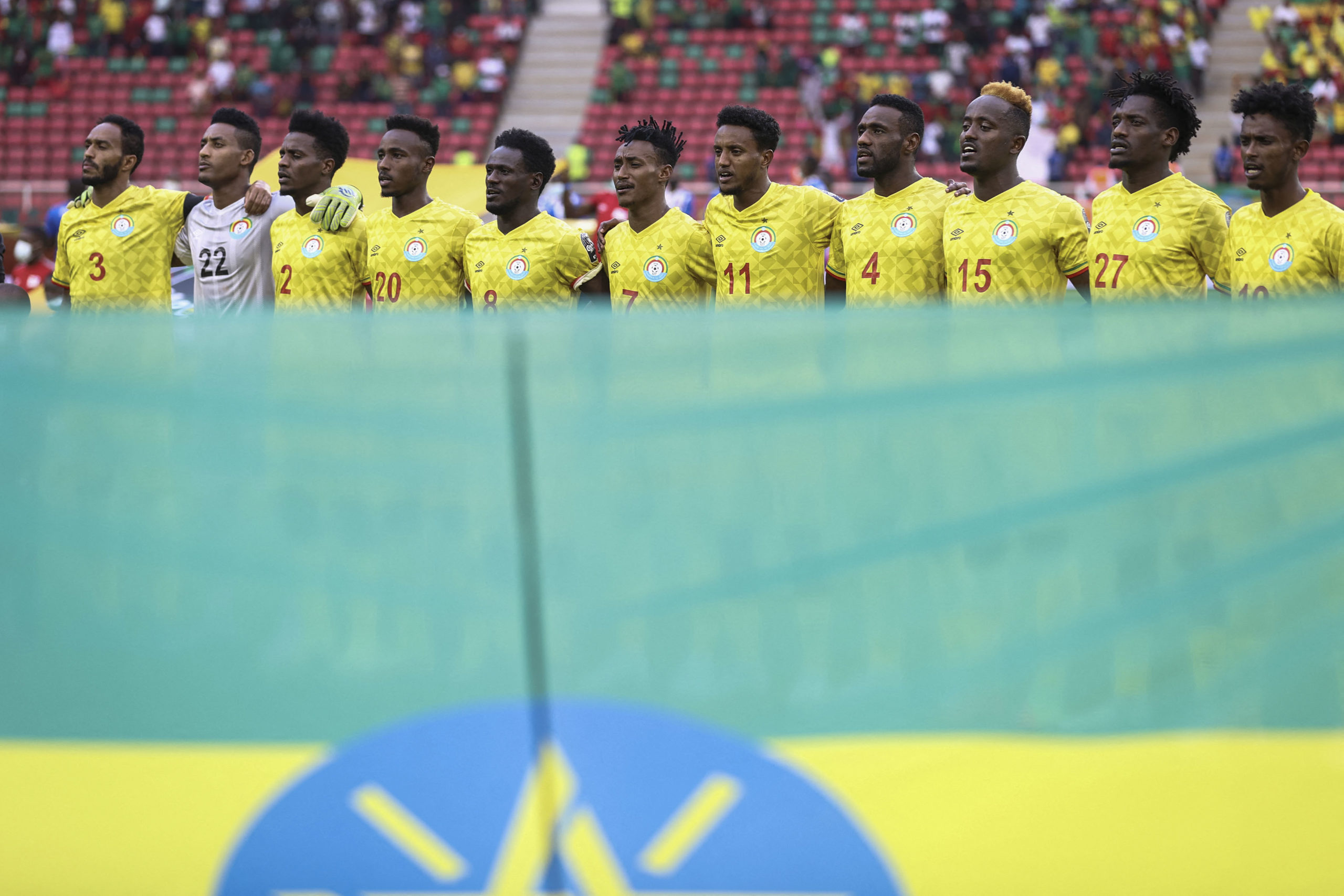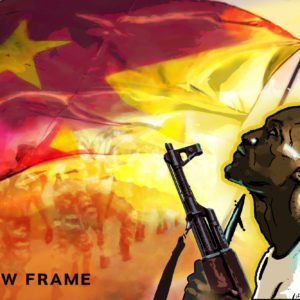What the Afcon means for Ethiopia
Players in the national team hope taking part in the tournament will buoy the hopes for a peaceful resolution of the Tigray conflict and also boost their chances of getting wider recognition.
Author:
17 January 2022

Ethiopia might have had a miserable showing in the 2021 Africa Cup of Nations (Afcon), but nevertheless their playing in the continental showpiece is a massive win for the country. The Walia Ibex, as the men’s national team is known, returned to the Afcon after a nine-year absence.
The team’s participation comes at a crucial time as the country seems to be moving towards peace from a conflict that has dragged on for more than a year. “To be honest, when I see our flag in such a big tournament I am proud,” Ethiopia coach Wubetu Abate said during a press conference.
Since November 2020, the Ethiopian National Defence Force has been battling with the Tigray People’s Liberation Front (TPLF), which the government has classified as a terrorist group. The conflict has had a devastating impact. Thousands of people have been displaced and an estimated 10 000 have lost their lives. Tigray has also been gripped by famine owing to the numerous restrictions imposed by the government.
The conflict was fuelled by regional leaders in Tigray, led by the TPLF, defying the federal government by organising elections in its jurisdiction. The TPLF went further and attacked a federal military base in Tigray. Supported by troops from Eritrea, the Ethiopian military responded with force.
Related article:
Four months after the conflict started, Walia Ibex qualified for the Afcon. The team had already shown great prospects of punching their ticket for the 24-team tournament when they dispatched Ivory Coast 2-1 and Niger 3-0. Amanuel Gebremichael, who was playing for Mekelle 70 Enderta FC, a football club based in the Tigray region, scored two goals in the qualifiers that saw Ethiopia finish behind Ivory Coast in group K to book their ticket to Cameroon. The 22-year-old is among the players in the team who were affected by the conflict.
“Gebremichael’s club was one of the sides in Tigray that couldn’t travel for games when the conflict started,” said Firew Asrat, an Ethiopian sport journalist. “So the Ethiopian Football Federation asked players in the region to choose any club of their choice in the country and continue their careers regardless of their contract situations.”
Gebremichael joined Ethiopian giants Saint George and has been influential in the colours of the national team. He was not only key in the qualifiers, but also produced the assist that led to Ethiopia’s only goal in the Afcon by the time they would conclude their campaign on 17 January against Burkina Faso. The unity, character and patriotism they have displayed are skills that they hope can be transferred to their warring countrymen to bring about a lasting peaceful solution.
Soldiers on the pitch
“I cannot say that we are totally ignoring the situation back home … that we are focusing only on football,” Wubetu said. “The conflict touches us as humans, but whenever we are on the field we just focus on the ball. We are soldiers in our own way here [in Cameroon] representing the country.”
Ethiopia, Egypt, Sudan and South Africa were the four founding members of the Afcon in 1957 when the first finals took place in Khartoum, Sudan. South Africa, however, didn’t play because the apartheid government wanted to field an all-white team in line with its policies. The Walias took part in the first seven editions and won in 1962, when it was staged at home. They disappeared from the tournament after 1982 and resurfaced again only in 2013.
The absence of 31 years was followed by an almost decade-long wait. “I think we need to work on the frequency of our participation,” Wubetu said.
The lack of international experience hurts Ethiopia, with only a handful of their team playing in top leagues on the continent. In their initial Afcon squad, only two players were plying their trade outside the country. That was cut to one when Shemele Bekele, who plays for Egypt’s El Gouna, was ruled out by injury. Bekele was in the Ethiopian team that played in the 2013 Afcon in South Africa.
Related article:
“He is the experienced and creative one in the team. It’s unfortunate that he is still recovering from a hamstring injury,” Asrat said. But Asrat predicts more players from the national team will be getting contracts abroad after this tournament, just as happened during the 2013 campaign. “About five of our players got contracts abroad. One of them was Mesud Mohammed. These players now too want to show themselves to big clubs and scouts around Africa and the world,” he said.
The dream of getting exposure had already been encouraged by South African broadcaster SuperSport acquiring the rights to show the Ethiopian Premier League. “Last season [2020-2021] we got only one player who moved abroad to play football [Mujib Kassim, who plays for JS Kabylie in Algeria]. The prospect is not that much, but we expect that more players will get the chance to play abroad since the league is on television now.”
Even though Ethiopia have not lit up the Afcon, their presence briefly offered a glimmer of hope for their country, whose citizens are eager for conflict there to end.


